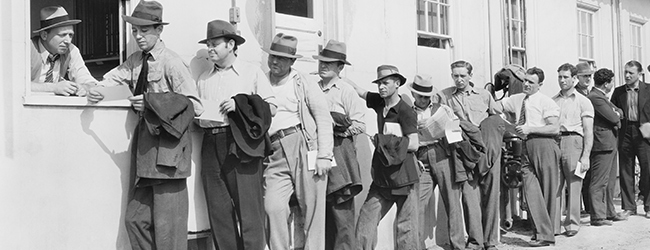
If you have been fired from your job or even if you have quit your job for a good reason, you can file for unemployment benefits through the South Carolina Department of Employment and Workforce (DEW). DEW has a nice website (dew.sc.gov) with a “claimants’” section you should visit right away.
All unemployment claims are made online. If you are not good with computers or the Internet, go to a local library for help or find a SC Works office to help you get access to the DEW website. The website lists the SC Works locations. There are no counselors there but they have computers you can use.
After you file for unemployment you will get a decision in the mail called an Initial Determination. In most cases you will be turned down for unemployment, disqualified for 20 weeks and the total benefits you can receive will be greatly reduced. Read the decision carefully. You only have 10 days to appeal. You should appeal.
To appeal, you go back to the DEW website. You will fill out the Notice of Appeal to Appeal Tribunal form. Most of the information on the form is basic, but in the middle of the page it says “I appeal and hereby apply for a hearing because I believe it was issued in error for the following reasons:” You have the right to appeal so you do not have to convince DEW of anything to get a hearing. I recommend that you answer this with few words. For example you could say “I didn’t do what they have accused me of doing” or “I didn’t quit, I was fired”. You get the idea. Don’t write a long description of your defense to the firing. Save that for the hearing.
There is also at least one other important form called the Application for Issuance of Witness Subpoena. If you have a witness for your side of the case you should subpoena that person to protect their job. The law says an employer can’t fire a subpoenaed witness. However a witness who volunteers to testify can be legally fired. This form also lets you subpoena key documents the employer has and you don’t.
Be sure to submit the completed Application for Issuance of Witness Subpoena at the same time you submit the Notice of Appeal to Appeal Tribunal.
Do not subpoena any witness who is against you.
Your appeal hearing will be held by telephone. If you have key evidence to offer at the hearing, fax it to the hearing officer (you will get a notice telling you who that is) before the hearing. It is also a good idea to be near a fax machine when you have the hearing.
If you ask a lawyer to help you, know that the law limits the lawyer’s fee to one Weekly Benefit Amount for each step in the process. This restriction sometimes makes it hard to find a lawyer to handle your appeal hearing for one Weekly Benefit Amount.
Although there are other appeal steps after the Appeal Tribunal hearing, this hearing is the only one where testimony will be given under oath. It is important.
If you were fired, the employer will testify first at the hearing. You (or your lawyer) can question each witness. You and your witnesses can then testify and be questioned. Be sure to answer the hearing officer’s questions directly and to the point. The main issue in a firing case is whether the employer fired you for “good cause”. In a quitting case, the issue is whether you quit for a good reason (e.g. sexual harassment).
Usually within 10 days you will receive a written decision from the hearing officer. As mentioned there are additional appeal steps but you cannot add evidence to the record at this point and would have to prove that the hearing officer made an error during the hearing.
It is difficult to win past the first Appeal Tribunal step so put a lot of effort into that hearing.
If you also plan to challenge your firing as being illegal (e.g. violation of Title VII of the Civil Rights Act), you might learn facts during the Appeal Tribunal hearing that could help your case. If so, you should write to DEW and ask if they will hold the hearing tape for you. Later, if you have a case, you can then subpoena that tape. This can be particularly important where facts are contested and a key witness for the employer changes his/her story later.
